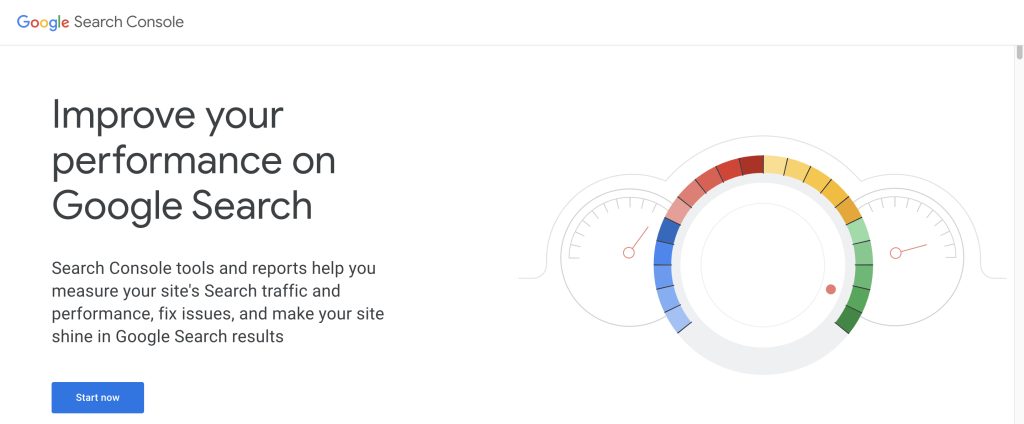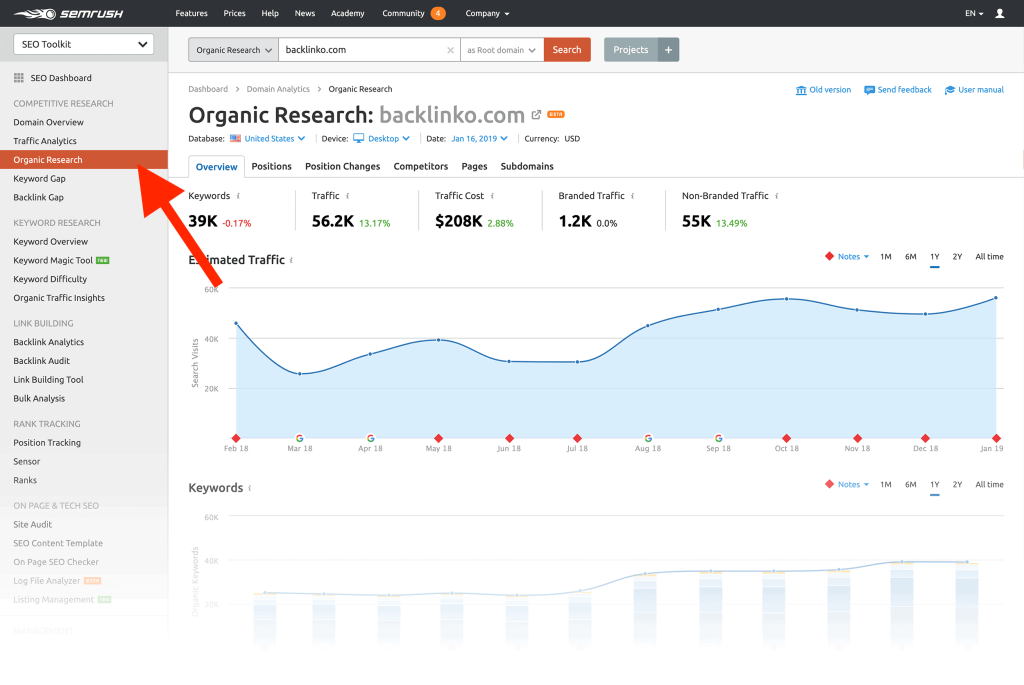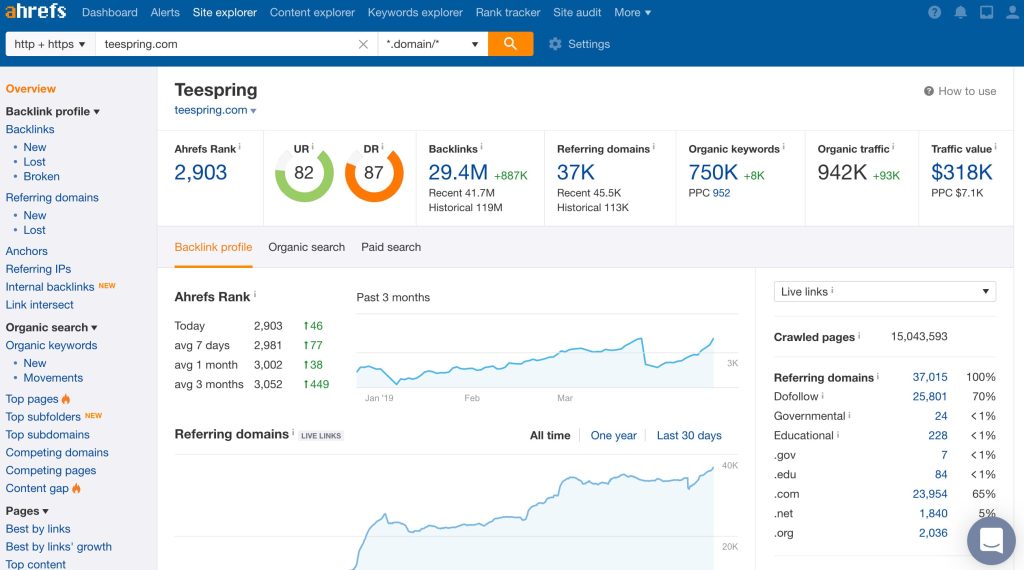A website’s search engine rating can be raised using SEO Businesses must monitor their SEO efforts to guarantee they obtain the greatest outcomes as the competition for internet visibility rises. In this post, we’ll explain the value of SEO tracking, various SEO metrics that should be monitored to raise a website’s exposure, and SEO tools to track their efforts.
What is SEO tracking?
To increase a website’s rankings and visibility, SEO tracking observes and examines how well-performing websites generally perform in search engine results pages (SERPs). This includes monitoring vital statistics like traffic, backlinks, and search engine rankings and finding and resolving technical problems affecting the website’s performance. SEO tracking aims to raise a website’s visibility and position in page search engine results to increase traffic and conversion rates.
Importance of Tracking SEO

In order to ensure that a website is performing to its best potential, SEO is an ongoing process that involves continuous monitoring and modifications. To pinpoint problem areas, comprehend how website changes affect visibility, and evaluate the effectiveness of SEO efforts, it is essential to track Seo rankings. Now the questions arise “how to track SEO progress? , How to monitor SEO progress?” It’s impossible to determine without tracking whether improvements to a website are improving or harming its visibility and ranking. SEO tracking is important for several reasons:
Identifying areas for improvement: Website owners and marketers may identify areas where their website is underperforming and take action to fix those areas by tracking important metrics like traffic, conversions, and search engine rankings.
Measuring the effectiveness of SEO efforts: Website owners and marketers can evaluate the success of their SEO campaigns and make data-driven decisions to raise their site’s search engine positions and increase traffic by monitoring a website’s performance over time.
Staying ahead of the competition: Website owners and marketers may remain ahead of the competition and ensure they are not losing ground in search engine rankings by keeping an eye on the performance of their websites and that of their rivals.
Identifying and addressing technical issues: Website owners and marketers can use SEO tracking online tools and SERP checkers to find and fix technical problems like broken links, duplicate content, and crawl mistakes that may affect the site’s performance in search results.
Optimizing for keywords: Additionally, SEO tracking aids website owners and marketers in optimizing their websites for keywords that are crucial to their businesses, increase traffic, and increase conversions.
Top 6 SEO metrics to track:
Conversion rate:
This metric measures the percentage of website visitors who take a desired action, such as filling out a form or making a purchase. It helps determine the effectiveness of your SEO efforts in driving business goals.
Organic traffic:
This metric measures the number of visitors to your website from organic search results. It can indicate the success of your SEO efforts in increasing visibility and driving more traffic to your site.
Keyword Rankings:
This metric measures the position of your website for specific keywords in search engine results. It can help you understand how well your site is ranking for relevant keywords and identify areas for improvement.
Click-Through Rate:
This metric measures the number of clicks on your website’s link in relation to the number of times it is shown. It can indicate the effectiveness of your meta descriptions and titles in drawing clicks from search results.
Domain Authority:
Domain authority measures the strength of your website’s domain in the eyes of search engines. A higher score can indicate a better ability to rank well for relevant keywords.
Time per Session:
This metric measures the amount of time users spend on your website. It can indicate the quality and relevance of your content and help identify areas where users may be dropping off.
On-page SEO Tracking
On-page SEO refers to optimizing a website’s structure and content to improve its visibility and ranking in search engine results in pages. On-page SEO tracking should include analyzing the website’s structure, content, titles, meta tags, meta descriptions, and keyword rankings.
Website structure: The structure of a website, including the use of headings, the organization of content, and the use of internal links, can have a significant impact on its visibility and ranking. Tracking changes to the website’s structure, such as adding new pages or changes to the navigation menu, can help identify any issues affecting visibility.
Content: The quality and relevance of a website’s content play a critical role in its visibility and ranking. Tracking changes to the content, such as adding new blog posts or product pages, can help identify any issues affecting visibility.
Keyword rankings: Tracking a website’s keyword rankings can help identify which keywords drive the most traffic and which need more attention. It can also help identify any technical issues affecting visibility, such as duplicate content or broken links.
Off-page SEO Tracking
Off-page SEO optimizes a website’s visibility through backlinks and other external factors. Off-page SEO tracking should include analyzing the quality and quantity of backlinks, the effectiveness of link-building efforts, and identifying potential competitors and their strategies.
Backlinks: Backlinks are critical in determining a website’s visibility and ranking. Tracking the number of backlinks and the quality of those links can help identify any issues affecting visibility, such as low-quality or spammy links.
Link building: The effectiveness of link-building efforts can be tracked by monitoring the number of new backlinks and the quality of those links. This can help identify any issues with the link-building strategy and identify opportunities for improvement.
Competition: Identifying potential competitors and their strategies can help businesses understand the competition and identify opportunities for improvement. By analyzing competitors’ rankings, traffic, and backlinks, businesses can identify areas where they may be lagging behind and adjust their SEO efforts to improve their visibility and ranking.
Top three SEO tracking tools:
Google Analytics:
This free tool offered by Google allows you to track website traffic, user behavior, and conversions by Google search console. It also provides valuable insights into how users find and interact with your site, which can help inform your SEO strategy.

SEMrush:
This paid tool offers various features for tracking your SEO performance, including keyword rankings, backlink analysis, and organic search data. It can also provide insights into your competitors’ SEO strategies and help you identify new opportunities for improvement.

Ahrefs:
This is a paid tool that offers a variety of features for tracking your SEO performance, including keyword rankings, backlink analysis, and organic search data. It also provides a rich data set, including the top organic search keywords that drive traffic to your site, the number of backlinks pointing to your site, and the top organic search competitors for your target keywords.

Reporting and Analysis
Collecting and analyzing data on SEO efforts is an essential part of SEO tracking. By analyzing data on website traffic, keyword rankings, backlinks, and other important metrics, businesses can identify areas for improvement and adjust their SEO efforts to improve their visibility and ranking.
It’s also important to communicate the results of SEO tracking efforts to stakeholders. This could include creating reports that show progress towards goals and KPIs, identifying areas for improvement, and presenting strategies for future improvements.
Conclusion
In conclusion, SEO tracking is an essential part of improving a website’s visibility and ranking. By setting clear goals and KPIs, tracking website traffic, keyword rankings, backlinks, and other important metrics, monitoring the competition, and analyzing data, businesses can identify areas for improvement and make adjustments to their SEO efforts to improve their visibility and ranking. To be successful in SEO, it’s essential to have a system in place to track progress and make adjustments as needed to reach your goals.

Leave a Reply